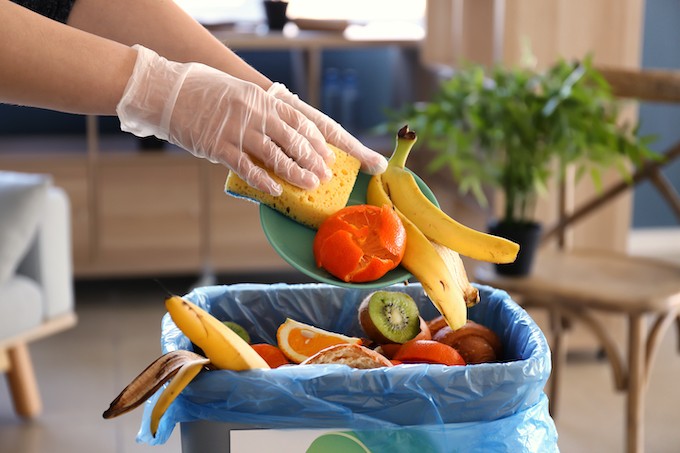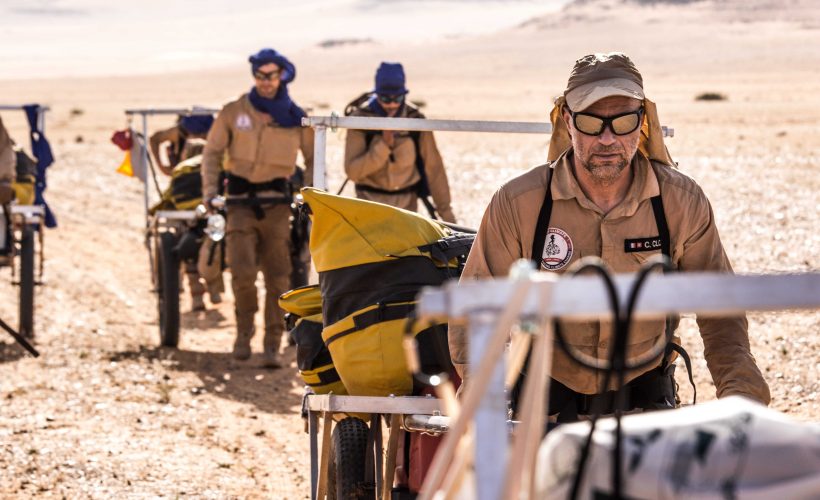Tech & Business
5.25.2021
4 startups fighting against food waste in Mena

According to the Food and Agriculture Organisation (FAO) of the UN, around 1.3 billion tonnes of food is wasted every year around the world. In the MENA region, the waste reaches up to 250 kilograms per capita a year of food. A plague that few ambitious startups decided to fight.
Today, 8% of the world’s greenhouse emissions are from food waste, a worrying issue that both the public and private sectors decided to tackle. UAE and Saudi Arabia have committed to cut down 50 per cent of their food waste and loss by 2030, aligning their policies with the United Nations’ 12.3 Sustainable Development Goal. From the startups side, some innovative initiatives have also emerged across Mena to bring solutions and address the problem of food waste through fixing the inefficiencies across all the value chain.
Uvera (Saudi Arabia)
In Saudi Arabia, the biotech startup Uvera is using UV light exposure to increase the lifetime of food. This technology is scientifically proven to destroy the DNA of the foodborne pathogens that cause food spoilage and food-borne illnesses like fungi for example. In only 30 seconds, the shelf life of fresh food is doubled with no use of chemicals. A benefit for the consumers as well as the planet. This technology was approved by the US food and drug administration (FDA) in April 2019 as safe food treatment.

Tekeya (Jordan)
Founded in 2019 , TeKeya is a social enterprise that gives the possibility for restaurants to redistribute their extra food. Indeed, its app enables food providers to sell all of their products before they expire and helps the users to save money and for charities to secure a stable donation channel for the needy. How? By offering the option for food providers to sell their imperfect, untouched but healthy food to people for a discounted price through its application or via a subscription model for restaurants who choose to donate their food, which are then sent to charities. Since its creation, the startup has partnered with 65 restaurants in Egypt and is now talking with investors to acquire its first funding by the end of this year to assist its expansion into the UAE and other countries in the GCC.
Foodeals (Morocco)
Created in early 2020, this young Moroccan start-up aims to become the largest community against food throughout the Middle East and Africa region. Inspired by the principle of the circular economy, its application allows users to geolocate themselves and detect local businesses offering promotions or unsold products of the day. A win-win formula since the consumer saves money and the shopkeeper transforms his loss of earnings into turnover while improving his visibility. Already operating in Fez with a dozen pilot businesses, Foodeals intends to establish itself in the Kingdom’s other major cities in the near future. The start-up also intends to expand its activity to the BtoB seCtor by putting large supermarkets and agribusinesses in contact with NGOs with daily food needs.

EroeGo (UAE)
Although not yet officially launched, EroeGo is making big waves in the conscious consumer community in the United Arab Emirates. This online grocery store aims to create a community of informed buyers who acknowledge the responsibility of the environmental impact of their purchases. Its business model is based on a sustainable and fair food delivery system, which aims to fight food waste as well as climate change. The startup also works to shift the region’s perception about “non desired” food, offering a transparent platform that provides its users with basic nutritional information, in addition to an optimized purchase cycle for fresh products delivery, and fair wages to its delivery drivers.

popular

